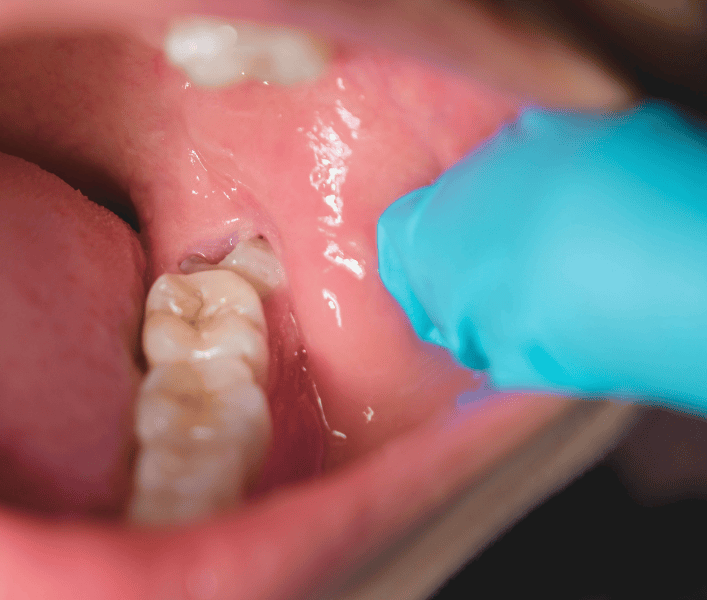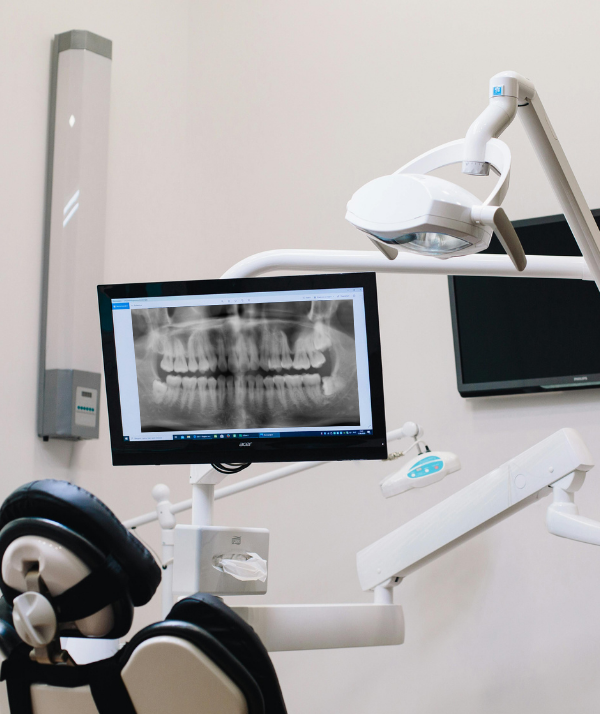NEUTRAL BAY | GENERAL & PREVENTATIVE DENTISTRY
Wisdom Teeth Removal
Gentle, safe and experienced care for impacted or painful wisdom teeth.
Wisdom teeth, or third molars, are the last teeth to erupt—usually between the ages of 17 and 25. While some people have no issues, others experience pain, crowding, or infection when their wisdom teeth come in at the wrong angle or become trapped under the gum. Even if they aren’t painful now, proactive removal can prevent more serious problems later.

When should wisdom teeth be removed?
Wisdom teeth should be removed if they are causing pain, infections or swelling. They are commonly difficult to clean, impacted (trapped beneath the gum or bone), and erupting at an angle, pressing on nearby teeth. Early removal is often recommended during the late teens or early twenties for easier healing and to avoid complications.

Signs your wisdom teeth might need removal
Watch for these common symptoms:
-
Jaw pain or stiffness
-
Swollen or bleeding gums
-
Bad breath or persistent unpleasant taste
-
Difficulty fully opening your mouth
-
Repeated infections at the back of the mouth
Your dentist will usually take an OPG X-ray to assess the position of your wisdom teeth and advise whether removal is necessary.

What to expect during a wisdom tooth extraction:
1. Initial Consultation
We begin with a 2D jaw scan (OPG x-ray) to assess the position of your wisdom teeth and determine if extraction is necessary.
2. Local Anaesthetic
Strong numbing gel is applied, followed by local anesthesia, to ensure a pain-free procedure.
3. Surgical Extraction
This is more commonly needed for lower impacted wisdom teeth. A small incision is made in the gum, the tooth may be divided into smaller pieces for easier removal; and your dentist may create more space in the bone around your wisdom tooth for safer removal for your jaw. Dissolvable stitches will be placed to help with healing.
4. Aftercare Guidance
You’ll receive clear instructions for rest, medication, swelling management, and healing. Your dentist may prescribe you with some antibiotics and analgesics.

Frequently Asked Questions
What are wisdom teeth?
Wisdom teeth are the third and final set of molars that usually erupt between the ages of 17 and 25. Some people have no issues, but others may experience pain, crowding, or infections if the teeth are impacted or misaligned.
Is wisdom tooth removal painful?
The procedure itself is not painful, as local anaesthesia is used to fully numb the area. You may feel pressure during the extraction, but not pain. Some soreness, swelling, or bruising after the procedure is normal and manageable with medication and rest.
What should I expect after wisdom tooth removal?
You may experience some swelling, bruising, or tenderness, which is normal and manageable with pain relief and rest. You may be given some analgesics and antibiotics.
Your dentist will guide you through what to eat (soft foods, no straws); how to reduce swelling (ice packs, elevation); how to keep the area clean without dislodging the clot; and warning signs to watch for (e.g., dry socket, prolonged bleeding).
We’ll also book a follow-up if needed to monitor healing.
How long does it take to recover after wisdom tooth removal?
Recovery usually takes about 3–7 days, depending on how many teeth were removed and whether the extraction was simple or surgical. Most patients feel much better within a few days and fully heal in 1–2 weeks. We recommend avoiding any cardiovascular exercise or heavy lifting for the first few days.
What can I eat after having my wisdom teeth removed?
Stick to soft foods like yogurt, mashed potatoes, soups, and smoothies (without a straw). Avoid hard, crunchy, spicy, or hot foods for a few days. We’ll provide a detailed guide to help you heal faster and more comfortably.
Do all wisdom teeth need to be removed?
Not always. Some people have wisdom teeth that erupt normally and stay healthy. But for many, wisdom teeth become impacted, misaligned, or hard to clean — and are better removed to prevent future problems.
How much does wisdom tooth removal cost?
The cost depends on how many teeth need removal and whether it’s a simple or surgical procedure. We provide a personalised treatment plan and quote during your consultation.
Is wisdom tooth extraction covered by private health insurance?
If you have dental extras on your health fund, wisdom tooth removal is often partially or fully covered depending on your level of cover. Our team can check your rebate for you at the time of your consultation.
Why choose Oaks Dental for your Wisdom Teeth Removal?
Patient comfort is our priority
Your comfort and wellbeing always come first. Our experienced dentists take the time to explain each step of the wisdom tooth removal process, so you feel informed and supported before, during, and after treat

Gentle, expert care for wisdom teeth removal
Whether you’re experiencing pain, swelling, or have been advised to remove your wisdom teeth, our team is here to make the process as smooth and stress-free as possible—with personalised care every step of the way.
